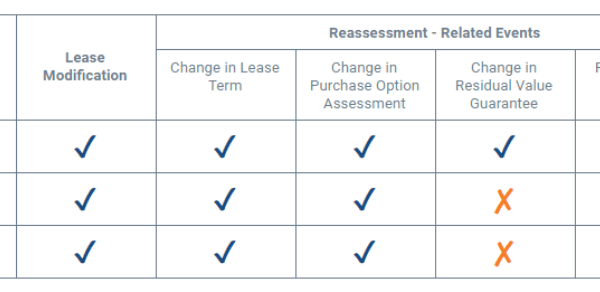This post originally appeared on Marketplace Advertiser, Connected Real Estate Magazine and is republished with permission. Find out how to syndicate your content with theBrokerList.
The recent rise in COVID-19 cases pushed back a number of business’ Labor Day target for bringing employees back to their offices, while simultaneously boosting coworking companies, Bisnow reports. A number of flexible office space providers have said they’ve seen occupancy increases throughout the summer, as a lot of small to mid-sized companies are opting for shorter leases and less rigid terms.
“I think a number of those companies would have just simply gone into traditional long-term space,” Common Desk CEO Nick Clark told Bisnow. “And the uncertainty is bringing them to us.”
The uncertainty around the Delta variant of the coronavirus has caused office occupancy levels in the Houston metro area to continuously fall since the end of the July. Since September 8, Houston office occupancy office levels were 45.4%, a fall from the peak of a 50% during the week of July 24, per Kastle Systems’ data. The city’s occupancy rate remains higher than any other city Kastle tracks, however. Meanwhile, Austin and Dallas aren’t far behind. These cities’ faring better than others is likely a reflection of Texas’ early reopening efforts, which have been credited with helping the state’s economy recover faster during the past six months.
Coworking space demand grows, while traditional office slows
The momentum traditional offices saw in terms of increased leasing activity during the spring and summer months has halted a bit, partly because decision makers have been hesitant to move forward with their return to office plans, office brokers and experts said during a recent Bisnow event. Meanwhile, coworking firms like Common Desk saw a demand increase during the second quarter of 2021, which has continued through the third quarter. The company’s Houston locations’ tour traffic went up by 30% during the second quarter compared the previous one. Common Desk’s revenue for its Houston portfolio has gone up 60% since May and The Ion, its newest Houston location, opened in mid-August already 40% occupied.
“We were really worried about (the delta variant), but we haven’t seen any material effect up to this point,” Clark told Bisnow. “Numbers continue to trend upwards from a tour traffic standpoint, which is a good sign for us.”
Coworking office models are appealing to solo entrepreneurs and smaller firms because of the short-term leases typically offered and their affordability. The flexibility only became more attractive during the pandemic. Coworking space giant WeWork noted its Houston properties have also seen strong upward growth. The firm’s All Access, which gives WeWork members access to any location for a flat monthly rate, bookings increased 70% in August compared to March. The company’s On Demand product bookings also increased more than 70% in August versus March.
WeWork, which operates four locations in Houston that comprise 273,000 square feet, said September has been its strongest month for occupancy with a month-over-month growth increase of 14%.
“Across the board, we’ve seen more and more companies and individuals in Houston embracing flexible space, even — and especially — as the pandemic has forced some companies to rethink their return to office plans,” WeWork Senior Territory Vice President Quendrida Whitmore told Bisnow.
Traditional offices’ road to recovery
The latest variant of the coronavirus has not impacted Houston coworking firms’ recovery, but how much of a boost these companies received from traditional office landlords’ struggle remains to be seen, Bisnow reports. For example, Clark acknowledged that it was too soon to tell if large-scale companies will purposely start signing short-term coworking leases.
“Our portfolio doesn’t have a ton of exposure to bigger enterprise suites,” he told Bisnow. “I think the delay on the corporate America side of things, it certainly hasn’t hurt us. (But) if it’s helped us, I don’t really know, unfortunately.”
Meanwhile, WorkSuite, which has four coworking locations in Houston and another 17 in the Dallas-Fort Worth area, has signed more companies up for space, according to Senior Director, Brand and Products Tosha Bontrager. The firm usually signs year-long leases, but the uncertainty around the COVID-19 pandemic and potential future disruptions has caused companies to lean towards three to six-month agreements.
“Everyone’s kind of afraid to commit for any long period of time,” Bontrager told Bisnow. “And I know a year is not long by normal standards, but three and six are more popular now than they were in the past.”
In potential sign of good news for traditional offices, Bontrager noted that WorkSuite has signed a number of month-to-month leases for companies that are waiting for standard office space to be built out. Meanwhile, Clark noted that Common Desk has seen similar instances, but the majority of his firms customers are seeking longer lease terms. The firm structures its agreements with landlords so that its landlord partners will eventually secure a long-term deal somewhere else in the building.
“The landlord is able to entice them to the building,” Clark told Bisnow. “They need that temporary space. And so, we can solve that for them very easily while they’re waiting for their long-term space to be built out.”
Both WorkSuite and Common Desk plan to expand within the greater Houston, regardless of the Delta variant.
“I think what Covid has done, and especially as Covid has lingered, it’s just simply given more companies a chance to sit and think and strategize and realize that maybe that five- to 10-year lease term isn’t necessary,” Clark told Bisnow. “It feels like companies, even stable companies — the world is moving so quickly that it’s really hard for them to project exactly what their office needs are going to look like three years from now.”
Joe Dyton can be reached at [email protected]
The post Recovery continues for coworking firms, as traditional offices falter appeared first on Connected Real Estate Magazine.



